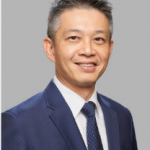Introduction
The Singapore International Commercial Court (“SICC“) has issued its first judgment dealing with arbitration proceedings. International arbitration often involves cross-boundary disputes, as well as the application of laws of different jurisdictions. SICC is thus well placed to manage such commercial disputes.
In BXS v BXT [2019] SGHC(I) 10, the Plaintiff applied to the Singapore courts to have an arbitral award set aside. In response, the Defendant applied to strike out the Plaintiff’s setting aside application on the ground that the Plaintiff’s challenge had been brought after the expiry of the three-month time limit in the UNCITRAL Model Law.
SICC agreed with the Defendant’s submission that the court does not have the power to extend the time for applying to set aside an arbitral award. Since the three-month time limit had lapsed, the Plaintiff’s application to set aside the award was accordingly struck out. In any event, SICC also rejected the grounds of setting aside submitted by the Plaintiff.
The Defendant was successfully represented by Ng Kim Beng, Alessa Pang, and David Isidore Tan of Rajah & Tann Singapore LLP on instructions by Allen & Overy.
Brief Facts
The Defendant, a Mauritius-registered company, had entered into a contract (“Contract“) with certain purchasers, the rights and obligations of which came to be vested in the Plaintiff, a Thai company.
The Contract included an arbitration agreement (“Clause 19“) stating that disputes “shall be exclusively and definitively settled by arbitration pursuant to the rules of the Singapore International Arbitration Centre (the Rules), by three arbitrators appointed according to the Rules.”
The parties entered into a dispute over the Defendant’s liability to indemnify the Plaintiff under the Contract for taxes imposed by the Thai tax authority. The Plaintiff submitted the dispute to the Singapore International Arbitration Centre (“SIAC“).
The Defendant subsequently applied for the arbitration to be conducted by a sole arbitrator under the Expedited Procedure pursuant to the SIAC Rules, and this was allowed by the SIAC President. The sole Arbitrator issued the Final Award on 12 June 2018 in favour of the Defendant.
On 9 November 2018, the Plaintiff applied to the Singapore court to set aside the Final Award. In response, the Defendant applied to strike out the Plaintiff’s application on the ground that it had been initiated out of time, and that the court had no right to grant an extension of time.
Holding of the SICC
SICC held in favour of the Defendant, allowing the Defendant’s striking out application and dismissing the Plaintiff’s application for the Final Award to be set aside.
Time
Under Article 34(3) of the Model Law, which has force of law in Singapore:
An application for setting aside may not be made after three months have elapsed from the date on which the party making that application had received the award…
SICC accepted the Defendant’s submission that the court did not have jurisdiction to even consider the merits of the Plaintiff’s setting aside application as the application had been made almost five months after the Final Award was issued, and that the three-month time limit cannot be extended under Singapore law.
In interpreting Article 34(3), SICC found that the natural and ordinary meaning of the words indicated an absolute prohibition, meaning that Article 34(3) imposed a mandatory time limit.
SICC then went on to consider whether it had the power to extend the time limit under Paragraph 7 of the First Schedule to the Supreme Court of Judicature Act (“Paragraph 7“), which gives the High Court:
Power to enlarge or abridge the time prescribed by any written law for doing any act or taking any proceeding, whether the application therefor is made before or after the expiration of time prescribed, but this provision shall be without prejudice to any written law relating to limitation.
This means that the High Court could have the power to extend the time limit, unless there is anything in the Model Law, including Article 34(3), that may be regarded as “relating to limitation”.
SICC found that Article 34(3) is in fact a “written law relating to limitation” as it extinguishes the right to set aside an award, rather than merely imposing a deadline for a procedural step. Once the right is extinguished, Paragraph 7 cannot be used to revive the right.
SICC also held that Article 5 of the Model Law prohibited the courts from intervening in matters already governed by the Model Law, and since Article 34(3) expressly prescribed a time limit, the court was not free to ignore that.
Therefore, the court lacked the power to extend the time limit for applying to set aside the Final Award. Accordingly, since the time limit in Article 34(3) had lapsed, the Plaintiff had lost its right to apply to set aside the Final Award.
SICC went on to consider that even if it had the discretion to extend time, it would not have done so as no good reason had been provided for the Plaintiff as to why set-aside proceedings were not commenced in Singapore. The fact that the Plaintiff did commence set-aside proceedings in Thailand (in respect of which the Singapore court granted an antisuit injunction) was not a good reason for failing to commence proceedings in Singapore within time.
Setting aside
In any event, SICC also considered and rejected the Plaintiff’s grounds for setting aside the Final Award.
- First ground: The Plaintiff submitted that the arbitration had been conducted by a sole arbitrator, whereas the Plaintiff had entered into the Contract on the basis that any dispute would be resolved by three arbitrators. SICC found that the Plaintiff had, by Clause 19, agreed to arbitration by the 2016 SIAC Rules. These Rules provided for the Expedited Procedure even in cases where the arbitration agreement contained contrary terms (such as number of arbitrators). Therefore, the use of a sole arbitrator under the Expedited Procedure did not contravene Clause 19.
- Second ground: The Plaintiff submitted that the Final Award dealt with matters outside the scope of submission because the Arbitrator “applied her own notion of Thai law” and awarded costs exceeding the permissible amount under the Thai Arbitration Act. SICC held that the Arbitrator had made careful reference to Thai law and had not “applied her own notion” of it. Further, SICC found that there was nothing wrong in how the Arbitrator had awarded costs, and that the applicable law for determining costs was Singapore law rather than Thai law.
- Third ground: The Plaintiff argued that the Final Award breached Singapore public policy for the reasons discussed above. As these grounds had been rejected, the public policy basis was rejected as well.
Concluding Remarks
This decision serves to clarify the timeline for the enforcement and challenge of an arbitral award before the Singapore courts. Under the Model Law, applicants have three months from the award to apply for it to be set aside. Once the three months have passed, the court cannot hear a setting aside application and cannot grant an extension of time.
As a practical matter, if parties also wish to override SIAC’s discretion to appoint a sole arbitrator in expedited proceedings, this case is a reminder to do so expressly.
For further queries, please feel free to contact our team below.
This article was authored by Ng Kim Beng, Alessa Pang and David Isidore Tan. A PDF version is available here.






